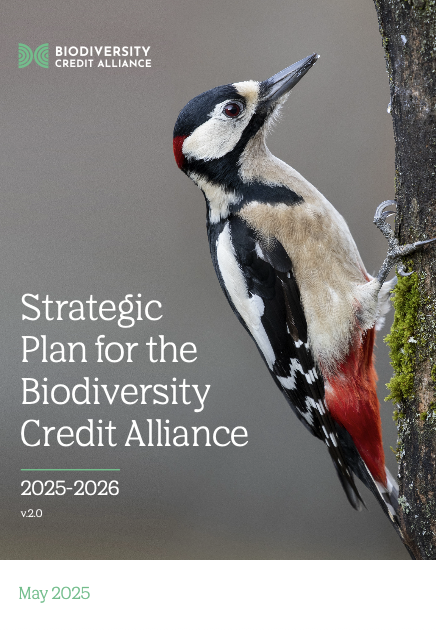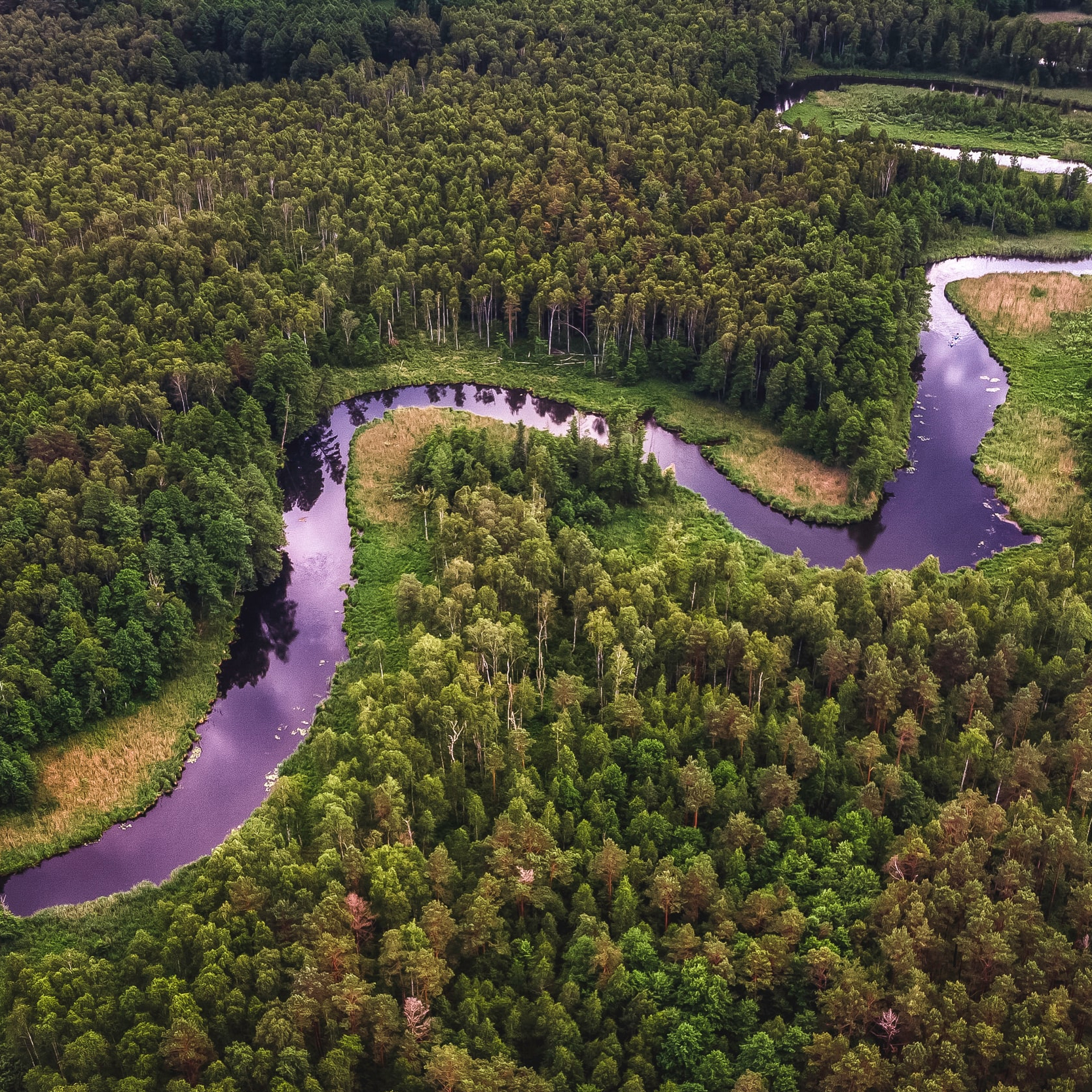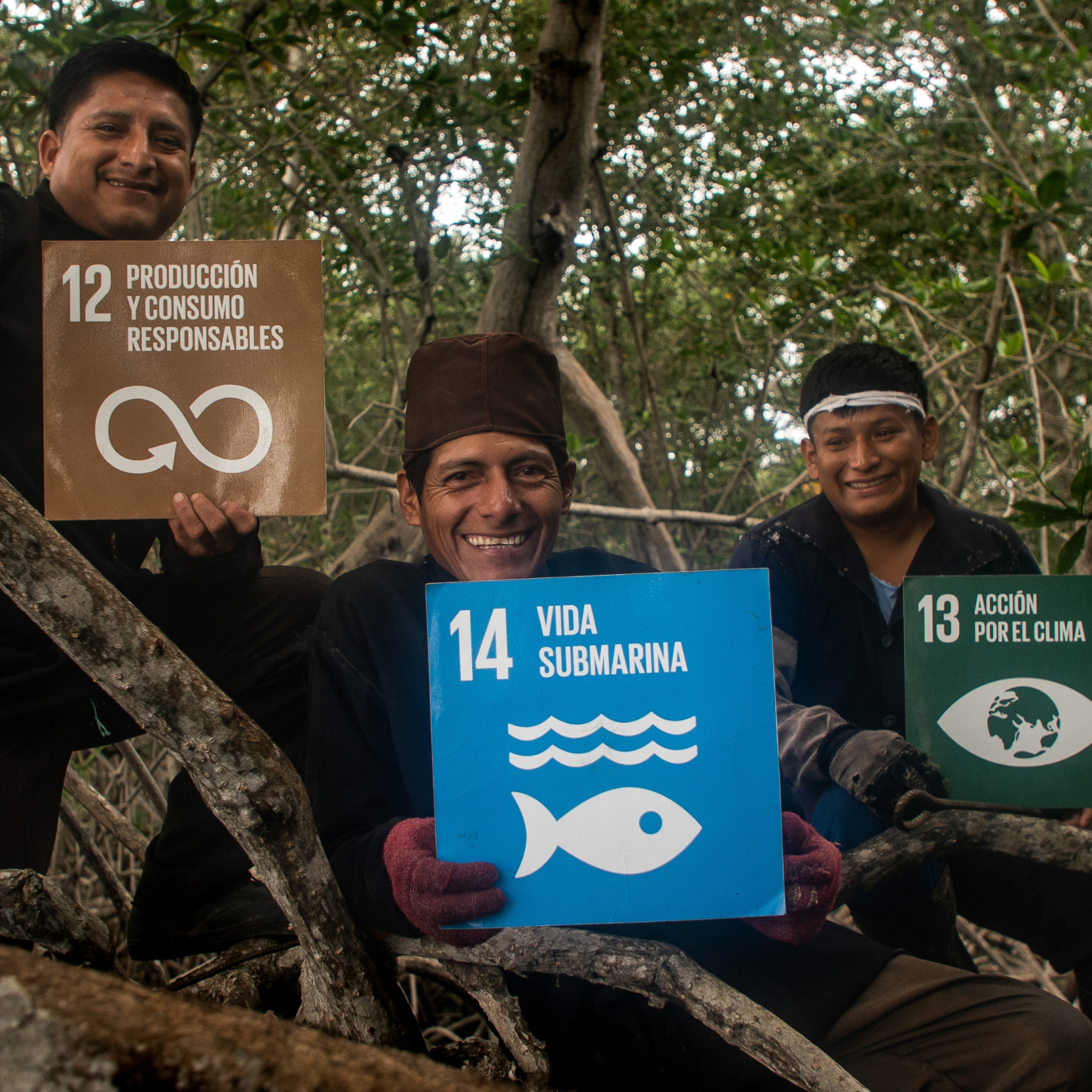A new market in
nature credits
needs the best start
possible.
Discussion Paper Launched
Understanding Biodiversity Credit Metrics: A Business Imperative

BCA Strategic Plan 2025-2026
BCA has released its 2025–2026 Strategic Plan, charting a path to build a transparent, trustworthy, and high-integrity global biodiversity credit market. The plan focuses on setting science-based principles, strengthening market governance, and ensuring meaningful participation and benefits for Indigenous Peoples and local communities. With targeted actions across demand, supply, measurement, and rights, BCA aims to catalyze credible investment in nature, align market practices with global biodiversity goals, and drive real, positive outcomes for both people and the planet.
“US$9.5 trillion is needed cumulatively from 2022 to 2050 to keep climate change below 2°C, stabilise biodiversity levels and achieve land degradation neutrality.”
UNEP State of Finance for Nature, 2022
Alongside a strengthened carbon market, a biodiversity credit market is in the early stages of being established. This market needs to be efficient and robust if it is to align private sector finance with nature positive goals and achieve just and equitable outcomes.
Why the Biodiversity Credit Alliance has been formed
The Biodiversity Credit Alliance (BCA) exists to provide guidance for the establishment of a credible and scalable market that stands up to the scrutiny of multiple stakeholders. Key among them are Indigenous Peoples and Local Communities at the frontline of the biodiversity crisis. Together we’re working to ensure strong foundations and principles exist and can be applied by all market participants going forward.

Biodiversity is life
Ecosystems and the biodiversity they support provide us with the food, water and medicine that are key to healthy human existence. Biodiversity contributes enormously towards sustainable growth and economic stability. It is key to the spiritual, cultural and social wellbeing of Indigenous Peoples and Local Communities, many of whom live in and care for the most biodiverse areas of our world. As a direct result of biodiversity, Earth is also made more resilient to climate change, with areas such as forests, peat marshes, coral reefs and seagrass beds acting as vast sinks that absorb carbon, preventing it from entering the atmosphere. Essentially, biodiversity forms a web of life without which humanity cannot thrive.

Investing where value is greatest
Despite the immense value it has, nature is in crisis thanks to human economic activity. With a greater understanding of the role of biodiversity, however, both public and private sector stakeholders now see the need to shift from extractive economic paradigms that deplete nature, towards regenerative ones that keep it intact, or help it function even better over time. In this context, biodiversity credits have been identified by the Kunming-Montreal Global Biodiversity Framework (GBF) as one of several instruments that have the potential to mobilize private sector finance for nature.

Engaging with communities to put nature first
Indigenous Peoples and Local Communities (IPs and LCs) are frontline stewards of nature. By way of land rights and/or traditional knowledge, they have a deep connection to nature and by virtue of the significant role they already play as nature’s custodians, BCA believes they should have a central role in the formulation of a biodiversity credit market. Only by respecting IP’s and LC’s rights in terms of Free, Prior and Informed Consent (FPIC), as recognized in the UN Declaration on the Rights of Indigenous Peoples (UNDRIP) can positive outcomes for nature and fair and equitable outcomes for all stakeholders be assured.

A new framework for a new market
In order to assess the value of efforts to enhance or maintain biodiversity, many variables must be consistently measured and accounted for. This calls for the utmost transparency in a complex system of validation and verification. A standard framework that can be agreed by all stakeholders will need broad adoption if this new market is to operate efficiently and at scale. To these ends, BCA envisages a biodiversity credit market that is underpinned by a digital framework that utilizes innovative technologies.
Our Vision
BCA’s vision is a transparent, trustworthy and efficient global market in biodiversity credits founded on just and equitable principles, and underpinned by innovation.
BCA works to facilitate the transition to a nature positive economy aided by an integrated, efficient and scaled biodiversity credit market. BCA considers biodiversity credits to be an effective complement to, but not a replacement of, the private sector’s supply chain transformation efforts. BCA views biodiversity credits as an effective mechanism for advancing the private sector’s participation in ecosystem remediation and transformative landscape approaches in line with science-based principles.

Our mission
BCA is a voluntary international alliance that brings together diverse stakeholders to support the realization of the Kunming–Montreal Global Biodiversity Framework, in particular Targets 19(c) and (d), which “encourage the private sector to invest in biodiversity” utilizing, amongst others “biodiversity credits … with social safeguards.”
Our mission is twofold:
- Help steer the development of a biodiversity credit market by building a framework of high-level, science-based principles.
- Provide guidance and encourage best practice for market participants on the application of these principles, empowering them to achieve and maintain equitable, high quality transactions that meet strict integrity criteria.


